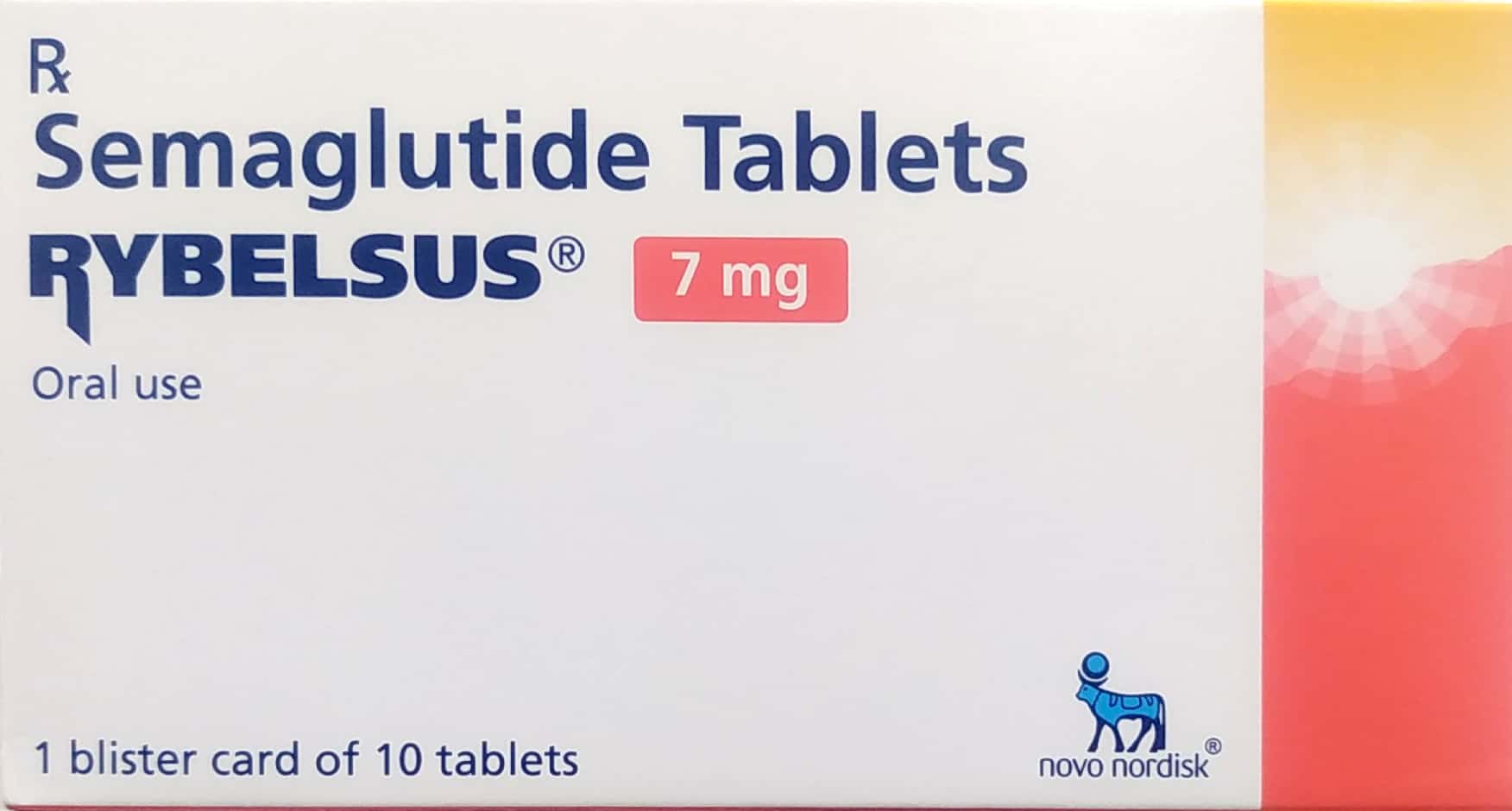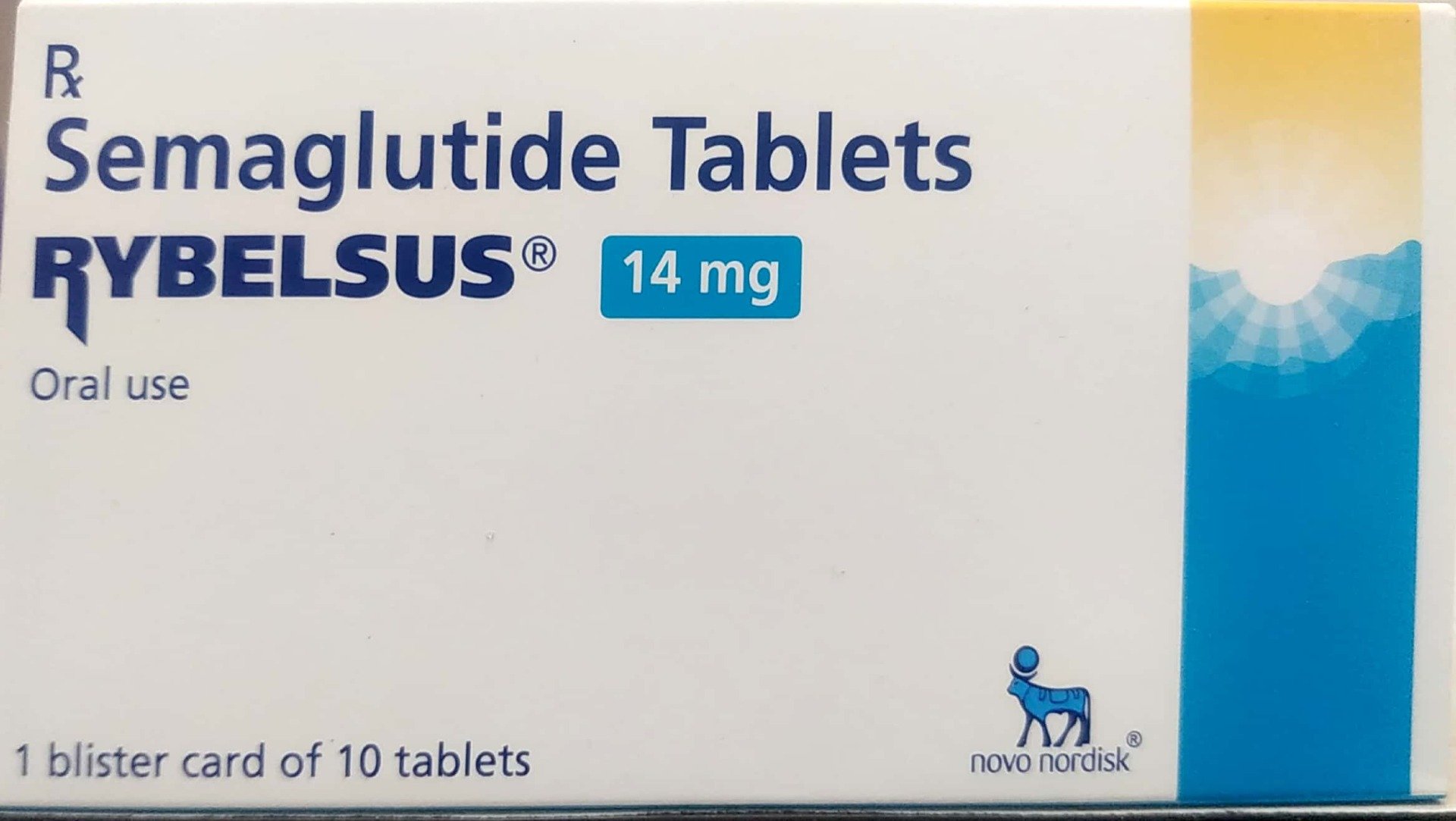Semaglutide
About Semaglutide
Semaglutide belongs to the class of medications called 'anti-diabetic agents' used to improve glycaemic control in adult patients with type 2 diabetes mellitus when diet and exercise are not enough or when the other medicines are not enough to control your blood sugar levels. Type 2 diabetes is a condition in which your body does not produce enough insulin, and the insulin produced does not drop your blood sugar as effectively as it could.
Semaglutide comprises semaglutide. Semaglutide is a GLP-1 physiological hormone that promotes glycemic control via several mechanisms, including insulin secretion, slowing gastric emptying, and reducing postprandial glucagon secretion. Changes to diet and exercise are often combined with this medication.
Take Semaglutide as prescribed. You are advised to take Semaglutide for as long as your doctor has advised. In some cases, Semaglutide may cause diabetic eye disease (retinopathy), feeling sick (nausea) or being sick (vomiting), diarrhoea, low blood sugar (hypoglycaemia), upset stomach or indigestion and inflamed stomach ('gastritis'). Most of these side effects do not require medical attention and will resolve gradually over time. However, if the side effects persist or worsen, consult your doctor.
It is recommended not to take Semaglutide if you are allergic to any of its components. You should inform your doctor if you get eye problems. If you have significant and ongoing stomach pain, consult a doctor immediately, as this could be a sign of an inflamed pancreas (acute pancreatitis). Avoiding alcohol is recommended to rule out any risk of lactic acidosis or other complications. Semaglutide is not recommended to use in a pregnant woman or nursing mother, or children below 18 years of age. If you become pregnant while using this medication, contact your doctor immediately since your treatment will need to be modified. Caution should be exercised. If your blood sugar is too low or too high, your driving ability may be affected. Do not drive if these symptoms appear.
Uses of Semaglutide
Medicinal Benefits
Semaglutide is used to treat type 2 diabetes in people 18 years and older. It is used when diet and exercise are not enough on their own or cannot use another diabetes medicine or when the other drugs are not enough to control or maintain your blood sugar levels. Semaglutide comprises semaglutide. Semaglutide is a GLP-1 physiological hormone that promotes glycemic control via several mechanisms, including insulin secretion, slowing gastric emptying, and reducing postprandial glucagon secretion. Changes to diet and exercise are often combined with this medication.
Directions for Use
Storage
Side Effects of Semaglutide
- Complications of diabetic eye disease (retinopathy)
- Feeling sick (nausea) or being sick (vomiting)
- Diarrhoea
- Low blood sugar (hypoglycaemia)
- Upset stomach or indigestion
- Inflamed stomach ('gastritis')
- Stomach ache
- Reflux or heartburn
- Stomach pain
- Bloating of the stomach
- Constipation
- Tiredness
- Less appetite
- Gas (flatulence)
- Increase of pancreatic enzymes (such as lipase and amylase)
Drug Warnings
It is recommended not to take Semaglutide if you are allergic to any of its components. You should inform your doctor if you get eye problems, such as changes in vision, during treatment with this medicine as the Semaglutide may lead to complications of diabetic eye disease (retinopathy). When taking this medication, you may feel nauseous (nausea), sick (vomiting), or have diarrhoea. These adverse effects may result in dehydration (loss of fluids). You must consume enough water to avoid dehydration, especially if you have kidney issues. If you have any questions or concerns, consult your doctor. If you have significant and ongoing stomach pain, consult a doctor immediately, as this could be a sign of an inflamed pancreas (acute pancreatitis). Avoiding alcohol is recommended to rule out any risk of lactic acidosis or other complications. Semaglutide is not recommended for pregnant women, nursing mothers, or people below 18 years of age. If you become pregnant while taking this medication, contact your doctor immediately since your treatment will need to be modified.
Drug Interactions
Drug-Drug Interactions: Semaglutide may have interaction with hormonal medications (e.g. levothyroxine), oral anticoagulants (warfarin), certain anti-diabetic medications (e.g. insulin), anti-cancer medications (e.g. bexarotene) and certain antibiotics (e.g. gatifloxacin).
Drug-Food Interactions: No interactions found/established.
Drug-Disease Interactions: Semaglutide may interact with disease conditions, including suicidal behaviour and ideation, thyroid cancer, GI adverse events, hypoglycaemia, pancreatitis and retinopathy.
Drug-Drug Interactions Checker List:
Safety Advice

Alcohol
unsafeIt is advised to avoid alcohol intake since it may worsen the side effects like lactic acidosis and increase the risk of developing low blood sugar levels.

Pregnancy
cautionSemaglutide is not recommended during pregnancy, as it is unknown if it affects your unborn baby. Please discuss this with your doctor if you have any concerns regarding this.

Breast Feeding
cautionSemaglutide should not be used if you are breastfeeding because it is unknown whether it goes into breast milk. Please discuss this with your doctor if you have any concerns regarding this.

Driving
cautionCaution should be exercised. If your blood sugar is too low or too high, your driving ability may be affected. Do not drive if these symptoms appear.

Liver
cautionLimited information was available for the use of Semaglutide in patients suffering from liver impairment. Please consult your doctor if you have any concerns regarding using Semaglutide in patients with liver impairment. Your doctor will prescribe only if the benefits outweigh the risks.

Kidney
cautionCaution should be exercised in people with kidney impairment while using Semaglutide. Inform your doctor before receiving the Semaglutide if you have had a kidney impairment/disorder history. Your doctor will prescribe only if the benefits outweigh the risks.

Children
unsafeSemaglutide is not indicated for children and adolescents under 18 since the safety and efficacy in this age range have not been verified.
Habit Forming
Diet & Lifestyle Advise
- Eat at regular intervals. Do not take a long gap between meals or snacks.
- Monitor your blood sugar level regularly, especially when there are a lot of fluctuations.
- Invest in at least 150 min of moderate-intensity physical activity and 15 minutes of exercise every week.
- Lose weight gradually to achieve a healthy body mass index (18.5 to 24.9).
- Replace refined carbohydrate-containing foods with whole-grain foods. Increase fruits, vegetables and other fibre-enriched foods in your diet.
- Reduce saturated fat foods such as chips, crisps, pastries, biscuits, and samosas.
- Choose omega-3 fatty acid-containing oils for daily cooking.
- Do not take stress as it may elevate your blood sugar level. You may adopt stress management techniques like mindfulness, yoga, or meditation to control stress-related blood sugar changes.
- Opt for low-fat dairy products (low-fat yoghurt, fat-free milk, cheese, etc.).
- Avoid drinking alcohol while on Semaglutide. It increases the risk of hypoglycaemia (a decrease in blood sugar which might be fatal in some cases) and lactic acidosis (when the lactic acid increases in the body, which impacts various organs).
- Try to quit smoking and reduce your intake of carbohydrate-rich food like potatoes, rice, mangoes, bread, sugar, etc.
Special Advise
- Keep taking Semaglutide even if your blood sugar levels are controlled until the doctor advises you to stop it.
- Recommend you monitor your blood sugar frequently.
- Monitoring of pancreatic enzymes (such as lipase and amylase) is recommended.
- Take short, frequent meals, and avoid prolonged fasting when taking Semaglutide. Beware of hypoglycaemia symptoms, including sweating, dizziness, palpitations, shivering, intense thirst, dry mouth, dry skin, frequent urination, etc. Whenever you experience the symptoms mentioned above, immediately consume 5-6 candies, three glucose biscuits, or three teaspoons of honey/sugar and get in touch with your physician. Make sure to carry these with you at all times, especially for long travels.
Patients Concern
Disease/Condition Glossary
Type 2 diabetes: Type 2 diabetes is a medical condition in which your body does not produce enough insulin, and the insulin produced does not drop your blood sugar as effectively as it could. In some situations, your body may produce excessive blood sugar. If your blood sugar rises and stays high for an extended amount of time, it can cause problems such as heart disease, renal disease, eye abnormalities, and poor circulation in your limbs. Therefore it is critical to maintain your blood sugar levels balanced.
FAQs
Semaglutide contains semaglutide. Semaglutide is a GLP-1 hormone that enhances glycemic control through various mechanisms, including insulin secretion, slowing gastric emptying, and decreasing postprandial glucagon secretion. This drug is frequently paired with dietary and exercise changes. Altogether Semaglutide reduces sugar levels in the body.
Low blood glucose levels are referred to as hypoglycaemia. Semaglutide may result in hypoglycaemia. Hypoglycaemia can occur if you skip or delay eating, drink alcohol, exercise strenuously, or take other diabetes medications in addition to Semaglutide.
Do not stop taking Semaglutide without first consulting your doctor. Take Semaglutide for as long as the doctor has instructed. Consult a doctor if you have any problems while taking Semaglutide.
Take the missed dose as soon as you remember. If it is time for the next scheduled dose, skip the missing dose and resume your regular dosing regimen. Do not double the dose.
Caution should be exercised if you have severe and ongoing pain in the stomach area. It is recommended to consult a doctor immediately, as this could signify an inflamed pancreas (acute pancreatitis). Your doctor will weigh the benefits and potential risks before prescribing this medication.
Semaglutide is not recommended to treat type 1 diabetes (your body produces no insulin).
Semaglutide should not use if you have type 1 diabetes or diabetic ketoacidosis or if you are allergic to Semaglutide or any of the other ingredients of this medicine.




